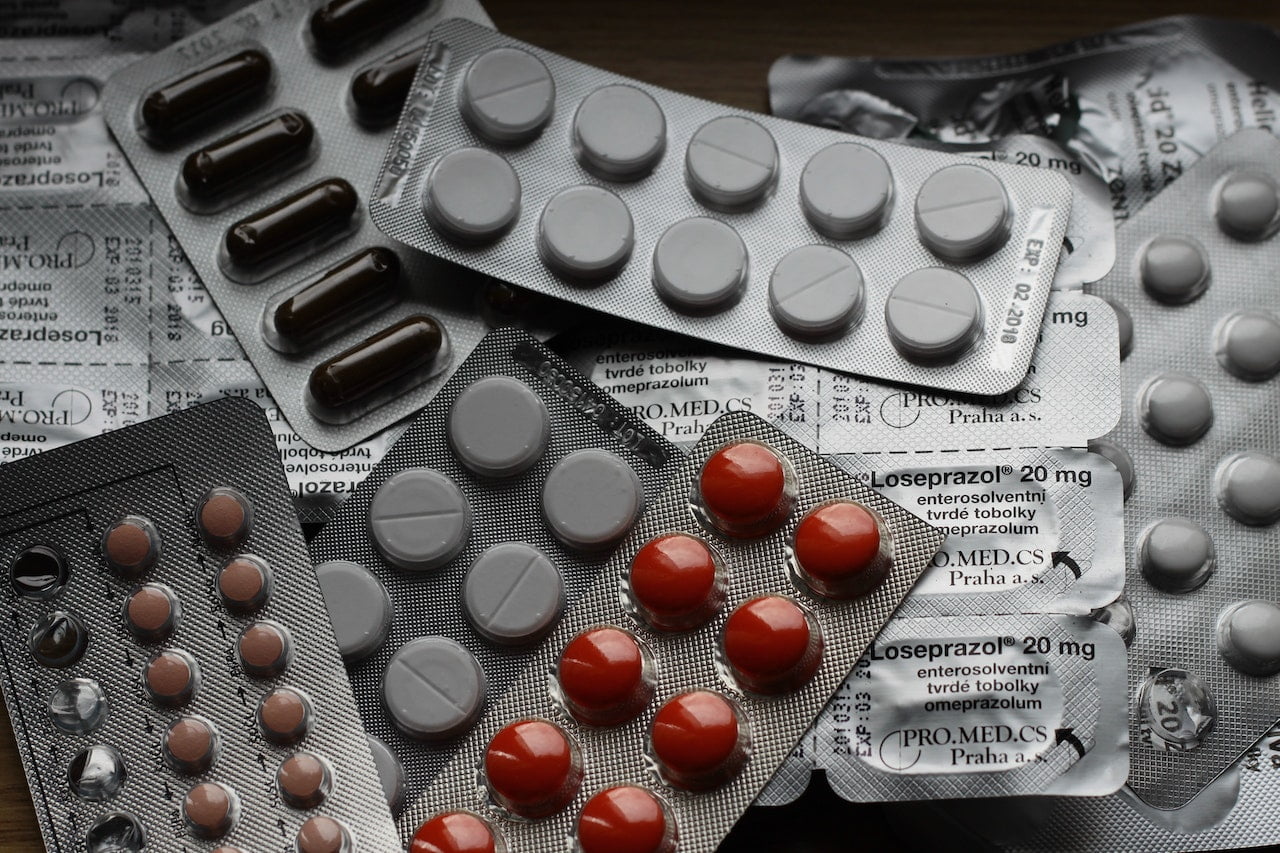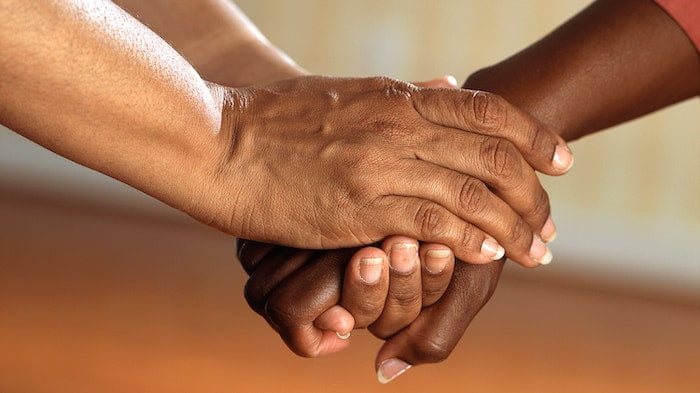Drug and Alcohol Rehabs in Guildford
You’ve tried it all. You’ve gone to therapy, you have tried to quit on your own, you have even worked with friends and family to treat your addiction. You might even have quit in the past, only to relapse and find that things got worse after you began reusing.
Does this sound familiar?
If so, you are not on your own. You might think there’s no way to get clean and stay clean, but this is not the truth.
Drug and alcohol rehab in Guildford is the solution you have yet to try, and might be the one that finally works for you.
For more information on drug and alcohol tehab in Guildford, contact us today on 0800 088 66 86
Drug & Alcohol Statistics in Guildford

- In Guildford, the hospital admissions rate for alcohol-specific conditions was 34.1% in 2019, which is higher than the national average of 31.6%.
- The figures for heavy alcohol drinking are also concerning; one in four adults in Surrey is dangerously misusing alcohol. Again, this figure is much higher than the national average.
- The demographic most affected by dangerous alcohol use is people aged between 25-64. However, binge drinking is strongly linked to young people aged between 16-24.
- Some of the most common substance problems in Guildford are opioid use disorder and crack cocaine addiction. In the 15-64 age range, there are 3,391 individuals with an opiate and/or crack cocaine substance abuse problem.
- Drug deaths are a significant problem in Guildford. A 2014 study found that there were 3.7 drug misuse deaths per 100,000 residents in 2014-16 in Guildford.
- This was the second highest rate in Surrey, after Waverley, which had 5.0 drug deaths per 100,000 residents.
For more information on Drug and Alcohol Rehab in Guildford, contact us today on 0800 088 66 86
What Happens During the Admissions Process for Rehab in Guildford?

It can be difficult to know exactly when you are suffering from addiction.
Social drinking can quickly become binge drinking, which can easily turn into alcohol dependency, and the same is true for any substance.
The professionals at a private clinic need to ensure that they’re treating you appropriately. You need to undergo once or more psychiatric assessments in order for staff to understand what treatments you need and how much input is required.
These assessments, such as the CAGE Questionnaire, allow your psychiatrist and rehab specialists to create a person-centred care plan that is specialised to address your specific needs.
ASAM Assessment
The ASAM (American Society of Addiction Medicine) Assessment is a comprehensive assessment that aims to paint a picture of you and your substance use from all areas. At the end of the assessment, the psychiatrist will understand how your psychological, physical, and social selves are affected by the substance.
From this, it will become clear what treatments are essential to support your healing.
You’ll be asked questions in the following areas:
- What withdrawal feels like and how you manage it.
- What your relationship with relapse is like.
- Whether you want to quit and how ready you are to change.
- What your physical health has been like up till now.
- How you think and feel about life and in reaction to things.
- What your home-life environment is like.
DSM-5 Scale Assessment
The DSM (Diagnostic and Statistical Manual of Mental Disorders) 5th Edition Scale Assessment aims to identify how serious addiction is. It changes the way people think about addiction.
Rather than associating severe addiction with dependence only, it also takes into account the serious consequences of psychological addiction.
The topics you’ll be questioned about are:
- Whether you’re able to reduce consumption.
- Whether you’re able to maintain your responsibilities at home and work.
- How your relationships and hobbies are affected.
- What are your withdrawal symptoms are.
- Whether you use it in risky ways.
AUDIT Assessment
An AUDIT (Alcohol Use Disorders Identification Test) assessment is for people who drink alcohol. Many people who consider themselves to be social drinkers are often surprised that they score higher than they thought they would.
The AUDIT assessment has proven to be effective throughout the world in identifying the problem and dependent drinkers.
The assessment is a series of 10 questions. It’s multiple-choice, so you choose the answer that fits. When you score over 8, this could indicate a drinking problem, over 13 might indicate a reliance on alcohol.
The topics you get questioned about include:
- How often do you drink and how much?
- What are the consequences of your drinking?
- How do people close to you feel about your drinking?
If any of these questionnaires have made you wonder about your own need for drug rehab or alcohol addiction treatment in Guildford, call us today on 0800 088 66 86
What is the Treatment For Drug and Alcohol Addiction in Guildford?

There are different theories regarding what the best treatment is for drug and alcohol addiction in Guildford. Generally, most people accept that the best treatment is a combination of a few different techniques, such as medication, detox, and therapy.
Here are some different types of treatment you can get for addiction in Guildford.
1. Detox
If you are experiencing any drug and alcohol withdrawal symptoms the first thing you should do is undergo a detox.
Withdrawal symptoms can include:
- Feeling or being sick
- Feeling paranoid
- Feeling anxious
- Feeling restless
- Diarrhoea
- Chills and sweats
- Headaches
- Increased heart rate and heart palpitations
- Excessive shaking
- Insomnia
- Nightmares
- Flu-like symptoms
- Delirium tremens
- Wernicke’s Encephalopathy
If you start to process the mental side of addiction without getting sober first, it could be dangerous. This is because you would be determined to quit drugs, but if you do this without a professional detox, you could go through a very intense, dangerous withdrawal.
There are different detox options available in Guildford. You could either have a professional home detox, an outpatient detox, or an inpatient detox.
Detoxes are suitable for both alcohol and drugs, but certain addictions do not require detox, such as behavioural addictions, cocaine dependence and cannabis use disorder.
Once you have detoxed, you are less likely to have strong cravings for the substance, and therefore it will be easier to stay sober.

2. Medication
Medication is not always a necessary recovery step, but it is for some victims of addiction. You are more likely to require medication if you have a severe addiction, you have developed a physical or mental health condition due to addiction, or you have detoxed many times but keep relapsing.
If you have mental health issues that directly relate to your addiction, taking anti-depressants could help. This applies if you keep relapsing as a result of poor mental health.
When a person suffers from both an addiction and a mental health issue, it is called a dual diagnosis.
Mental health disorders that are commonly linked to addiction include:
- Schizophrenia
- Bipolar Disorder
- Eating disorders
- Depression
- Generalised Anxiety Disorder (GAD)
- Borderline Personality Disorder (BPD)
- Obsessive Compulsive Disorder (OCD)
- Attention Deficit Hyperactivity Disorder (ADHD)
- Post Traumatic Stress Disorder (PTSD)
- Codependency
Physical conditions are widespread and depend on the specific addiction, but some of the most common are:
- Liver failure
- Hepatitis
- Heart issues
- Blood pressure issues
- Brain damage
- Gastrointestinal issues
When you take medication that balances out the chemicals in your brain, you will be in a much stronger position to fight against temptation, and you will not feel the need to heal your mental health with drugs and alcohol.
A medically-assisted detox is often key in overcoming those substances that cause physical dependence, such as alcohol, heroin, ketamine and benzodiazepines.
For alcohol detox, this will involve the use of drugs such as Librium, also known as Chlordiazepoxide, which is extremely effective at reducing the effects of alcohol withdrawal syndrome.
Heroin detox is extremely important to ensure safe recovery. Medications like methadone and buprenorphine are widely used to make heroin withdrawal a much safer process.
Although some of these substances are addictive themselves, as the dose is much lower, working to reduce withdrawal symptoms and cravings and making relapse less likely.

3. Therapy
One of the best ways to ensure a patient stays on the path to recovery permanently is to ensure they are having regular individual therapy.
If they do not, each trigger that arises may push them to want to take drugs again.
However, if they get to offload to a therapist, and get advice on how to handle their substance use problem, there is more chance that they will resist taking drugs for the rest of their life.
There are many different forms of talking therapies and psychiatric treatments that may be considered, depending on what exactly you need:
- Group Therapy and Group Psychotherapy
- Family Therapy
- Individual Therapy
- Codependency Treatment
- Cognitive Behavioural Therapy
- Brief Intervention
- Motivational Interviewing, Motivational Enhancement Therapy and other forms of motivational therapy
- Eye Movement Desensitisation and Reprocessing
- TSF (Twelve-Step Facilitation Therapy)
- Dialectical Behavioural Therapy
- Acceptance and Commitment Therapy
- Contingency Management
- Rational Emotive Behaviour Therapy
- Holistic and alternative therapies (music therapy, art therapy, mindfulness, meditation, yoga, acupuncture, equine therapy, drama therapy, etc)
4. Aftercare
Aftercare is an umbrella term that often includes therapy and medication. However, it can go beyond this.
It is simply a way of extending the support offered to Guildford rehab patients so that they benefit from treatment resources long after they go to rehab for detox and therapy.
One common example of aftercare is the 12-step program, involving the use of mutual support groups like Alcoholics Anonymous, Narcotics Anonymous and Cocaine Anonymous, as well as offshoot groups like Al-Anon Family Group Meetings and Alateen
This allows patients to meet with a group of people in recovery regularly, so they get constant reminders of the importance of sobriety, and of the fact that they are not alone in suffering from temptation.
For those looking for a support group without reference to a higher power, one can also access the widespread system of SMART Recovery groups.
For more information on drug and alcohol tehab in Guildford, contact us today on 0800 088 66 86
If I Have a Drug Dependency, Will I Eventually Have an Addiction?

It is not guaranteed that you will develop an addiction when you have a drug dependency problem. You could continue to use drugs and alcohol without it affecting all areas of your life, and giving you physical and psychological symptoms (which is what addiction is).
However, plenty of people with a drug dependency problem do end up developing an addiction, so it is something you should be very wary of. If you recover from drug dependency, it will be much smoother than attempting to recover from addiction later down the line.
What’s more, being dependent on drugs does not make for a comfortable life either. Even when you are not completely addicted, you are bound to experience low mood, relationship problems, and anxiety about your future if you are relying on substances to deal with your problems.
For more information on drug and alcohol tehab in Guildford, contact us today on 0800 088 66 86
If I Have a Family Member with Addiction, Will I Develop an Addiction?

If you have a family member with an addiction, you will not necessarily develop one yourself. If you have never had problems with substances in the past, there is no need to worry that you will develop an addiction out of nowhere.
It could be harmful to live as though you’re going to develop a substance use problem at any point because it could cause you to not trust yourself.
That being said, there is more chance of you developing an addiction if you have a family history.
This means that if you are showing any early signs of drug dependency, or you feel compelled to try drugs or alcohol for the wrong reasons, you should be cautious about the possibility that you could have a problem at some point.
For more information on drug and alcohol tehab in Guildford, contact us today on 0800 088 66 86
If I Have Experienced Trauma, am I Bound to Experience Addiction?

No, trauma does not have to result in addiction by any means. Many of us have suffered trauma and do not have a substance abuse problem.
It is less likely that you will develop an addiction after trauma if you go to therapy and process what has happened, and if you develop healthy coping mechanisms.
However, trauma can sometimes be a precursor to addiction. This is because people who have dealt with a lot of trauma, and do not know how to manage it, may believe that drugs and alcohol are their way out.
What’s more, if the trauma involves substances (e.g., domestic violence involving alcohol), the individual has already been exposed to this lifestyle and therefore has more chance of immersing themselves in it.
For more information on drug and alcohol tehab in Guildford, contact us today on 0800 088 66 86
What is the Difference Between Substance Addiction and Behavioural Addiction?

Substance addiction is self-explanatory; it is any addiction involving substances such as alcohol addiction, opioid use disorder, cannabis addiciton, heroin addiction, prescription drug addiction, or cocaine addiction.
Behavioural addiction, on the other hand, is an addiction to particular activities such as gambling addiction, shopping addiction and even sex addiction.
You can attend drug and alcohol rehab in Guildford for a substance addiction, a behavioural addiction, or both. Most people at rehab have substance abuse problems, but the treatment applies to all types of addiction, so you will not be excluded if your addiction is behavioural.
For more information on drug and alcohol tehab in Guildford, contact us today on 0800 088 66 86
Find a Drug and Alcohol Rehab in Guildford

As we have said, you will not struggle to find a place at a drug and alcohol rehab in Guildford with us. That’s why you should reach out to us as soon as possible so that you can begin recovery very shortly.
When you contact us, we shall outline a variety of treatment options that are available to you in Guildford. This includes both private and statutory addiction treatments.
The NHS (National Health Service) also provides free, reliable information for drug and alcohol addictions and dependencies, as well as limited support through various NHS Foundation Trusts.
Below is a list of other organisations that offer free support and advice for addiction in and around Guildford:
1. CGL (Change Grow Live)
Address: Centenary House, County Buildings, Woodfield Rd, Crawley RH10 8GN
Telephone: 0300 3038677
Website: https://www.changegrowlive.org/
2. I-Access
Address: Laurel House, Farnham Rd, Guildford GU2 7LX
Telephone: 01483 450256
Website: http://surreydrugandalcohol.com/
3. Mindworks Surrey
Address: Farnham Road Hospital, Guildford GU2 7LX
Telephone: 01372 216111
Website: https://www.mindworks-surrey.org/
You can reach out to a number of remote services, such as the National Institute for Health and Care Excellence (NICE), Turning Point, We Are With You and the National Association for Children of Alcoholics.
There are also a number of widely available helplines, including Mind UK, YoungMinds, Rethink Mental Illness, Samaritans and Papyrus.
If you are suffering from too many temptations and triggers in your home life, you may also be able to gain temporary residence in a sober living house.
For more information on Drug and Alcohol Rehab in Guildford, contact us today on 0800 088 66 86
FAQs About Drug & Alcohol Rehab in Guildford

Below, we provide some frequently asked questions and their answers about the drug and alcohol rehab process in Guildford:
1. Do you have to temporarily cut contact with your loved ones?
You may have to stop contacting your loved ones while you stay at drug and alcohol rehab in Guildford. Some private rehabs demand this as they want your full attention to be on recovering, as that is what you have entered rehab for.
If you are close to your family, they should understand this as they are hopefully in support of you getting sober. To help them understand, you could show them the Rehab Recovery website.
Many of our patients say that their loved ones have benefitted from reading our articles and learning about how they can support their family members who are in recovery.
On the other hand, if you have a good reason to stay connected at rehab, you can find drug and alcohol clinics that allow you to take your phone and potentially other gadgets. This would allow you to catch up with your loved ones each week if you wish.
If your family are part of the reason you struggle with substances, this may be the right time to intentionally cut them out or to distance yourself from them.
After your rehab stays, we would recommend getting closer to people who are supportive of you, as this will keep you inspired to stay sober.

2. What’s different about residential rehab in Guildford?
The difference between rehab in Guildford and other treatment options is that there is no opportunity to relapse while you are completing treatment, as drugs and alcohol are not available.
This provides you with a fresh start, which makes long-term recovery much easier to maintain.
The privacy of Guildford rehab is ideal for people who feel ashamed of their addiction, as shame often perpetuates substance abuse. These patients should have some time away to process their shame and learn how to develop high self-esteem.
With other treatment options, it is not guaranteed that you will have an aftercare programme, so you may end up feeling alone as you are battling the hardest part of recovery (which tends to be the first year after treatment).
However, rehab in Guildford always includes aftercare, so you have the best chances of staying sober. What’s more, you have input into your relapse prevention plan, so you can offer suggestions that you believe would help you in your sobriety.

3. What are the downsides of private rehab in Guildford?
If you are much happier at home, you may find that it is too much of a change to go to Guildford rehab, where you will be living with strangers, sleeping in an unfamiliar room, and functioning on someone else’s schedule.
Another potential downside of rehab is that it is more expensive than other types of treatment in Guildford.
This goes without saying, as it offers the highest quality treatment, but not everyone can afford this.
Finally, you may not be allowed to go to rehab in Guildford, depending on what your mental health is like, and what your history of addiction is like. This is especially true if you tend to get violent when you use substances, your addiction is extremely severe, or you have had many unsuccessful treatment attempts.
Overall, however, the advantages of rehab far outweigh the disadvantages. The vast majority of drug and alcohol users would qualify for a rehab stay and would experience a wonderful treatment programme while they are there.

4. What happens if there are no spaces for me at rehab?
If you ask us for a referral, there will never be any spaces for you at residential rehab.
There are many Guildford rehab facilities we can get in touch with that would be delighted to have you, no matter what addiction you have and how long you have had it.
If you are seeking NHS funding, it is possible that there will be no spaces for you, and that you will have to wait for several years before entering rehab.
However, NHS funding is not common at all, so we always recommend saving for private treatment if you are in the fortunate position to be able to do this.

5. Can I try to recover at home?
We do not condone recovering by yourself. It is the most dangerous route you could take, and it is not worth risking your life for. If you refuse to seek treatment elsewhere, the safest thing you could do is have a professional home detox.
You would still be in the comfort of your own home, but your detox would be carefully regulated for your safety.
With outpatient treatment in Guildford, you also get to spend a good amount of time at home, so this could be another way to recover safely without leaving your home for an extended period.

6. Who will support me at drug and alcohol rehab in Guildford?
The team at private rehab is usually large, as different people are needed for different things.
Doctors are needed to conduct detoxes, therapists are needed for the various therapy sessions, psychiatrists are needed to help make treatment plans and talk to patients, cooks are needed to make three meals a day, and the list goes on.
At rehab, most patients feel a huge sense of support from all members of staff, as they are all hoping that each patient completes treatment successfully and gets to live a life free of addiction.
You will also be supported by the other patients who will be undergoing detoxing and therapy with you. It is likely that you will build strong friendships at residential rehab, as all patients are tackling a shared challenge, and are opening up to one another about their difficult past.
Rehab Recovery also offers addiction support across the UK, including Crawley, Farnborough, Woking, Basingstoke, Reading, Slough, Winchester, Croydon, Alton, Haslemere, Horsham and Camberley. All drug and alcohol rehabs must be registered and audited by the Care Quality Commission (CQC).



